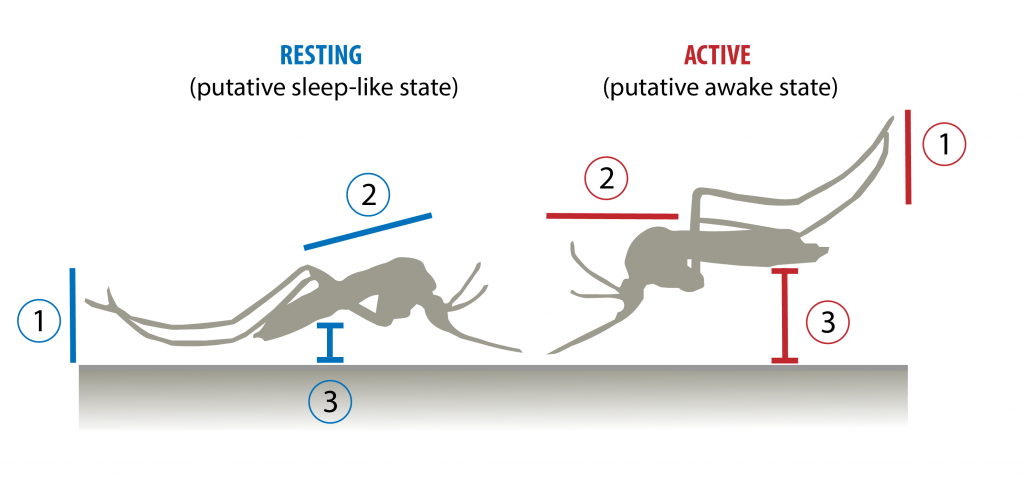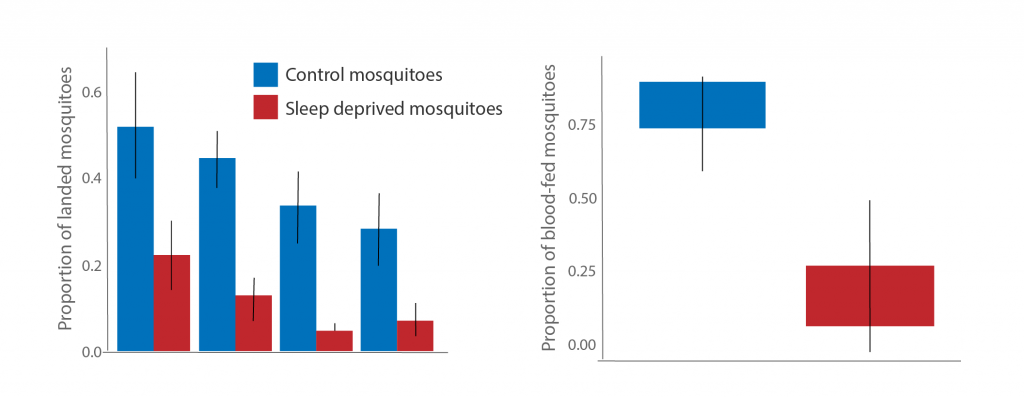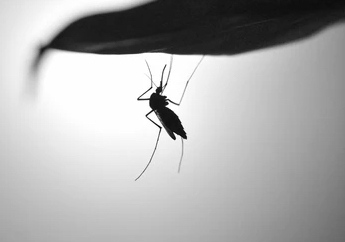One can feel tired after spending the night kept awake by the buzzing of a mosquito. It turns out that we are not the only ones that function poorly after a bad night, mosquitoes also require a good rest to carry out their activities, including feeding. A new study has observed that when their sleep is interrupted they spend more time recovering sleep than looking for food and bite us.
Mosquitoes also sleep, in fact, in the laboratory they sleep a lot, between 16 and 19 hours a day, depending on the species and the stimuli that surround them. Studying their sleep is not easy, seeing them rest on the walls or crouched among the leaves of a bush is simple, but as soon as a person approaches, their smells, their body heat and their movements alert the mosquitoes. So to avoid depriving mosquitoes of sleep and understand their circadian rhythms, a special laboratory was designed with a room within a room, so that researchers could analyze the mosquitoes’ activity using cameras and infrared sensors without disturbing them.
Do not let a mosquito sleep, it will bite less
The experiment was carried out with three species with very different habits: the yellow fever mosquito (Aedes aegypti) with mainly diurnal and crepuscular activity, the common mosquito (Culex pipiens) with more nocturnal activity, and Anopheles stephensi, a highly active species overnight. Their sleeping and feeding behavior was analyzed for one week, once they had acclimatized to the experimental room. But how do you know when a mosquito is sleeping? They have come to describe that during sleep their body position is different: their hind legs give way and fall, bringing their body closer to the surface on which they rest (Figure 1).

Fig. 1. Diagram of the differences found between active mosquitoes resting on a surface (in red) and mosquitoes in a sleeping state on a surface (in blue). When they sleep, the hind legs fall downwards, not being as high as when they are active (1), which modifies the angle of the body with respect to the surface (2) and the distance of the body with respect to it (3), being much closer to the resting surface when sleeping than when just resting on it. Source: Mosquito Alert CC-BY Image modified from original by Ajayi et al. 2020, Trends in Parasitology 36: 888-897.
During the experiment, 75% of the mosquitoes that were allowed to sleep peacefully spent time waking up searching for blood. The experiment was then repeated with other sleep-deprived mosquitoes, vibrating their enclosures at regular intervals throughout the day and night. Of these, less than 25% of the mosquitoes subsequently spent energy and time searching for blood to feed on (Figure 2). Mosquitoes that had not been allowed to sleep were less likely to land on a person, both in the lab and in the field, preferring to catch up on sleep rather than bite.

Fig. 2. Percentage of yellow fever mosquitoes that land on an artificial host after the end of the resting period of the species, and the proportion of mosquitoes that feed on blood after the resting period. The blue color refers to the mosquitoes in the control treatment, while the red color refers to the mosquitoes that have been deprived of sleep. Source: Mosquito Alert CC-BY, image modified from original by Ajayi et al. 2022. Journal of Experimental Biology 225: jeb244032.
Sleep is linked to immune and restorative functions, such as tissue repair and protein synthesis. It is a crucial act in animals, we now know, even for mosquitoes. The knowledge gained can help understand mosquito circadian rhythms and behavior, and how sleeping and feeding patterns can affect disease transmission dynamics.
References
Ajayi OM, Elierts DF, Bailey ST, Vinagre C, Benoit JB. 2020. Do mosquitoes sleep? Trends in Parasitology 36: 888-897
Ajayi OM, Marlman JM, Gleitz LA, Smith ES, Piller BD, Krupa JA, Vinagre C, Benoit JB. 2022. Behavioral and postural analyses establish esop-like states for mosquitoes that can impact host landing and blood feeding. Journal of Experimental Biology 225: jeb244032




